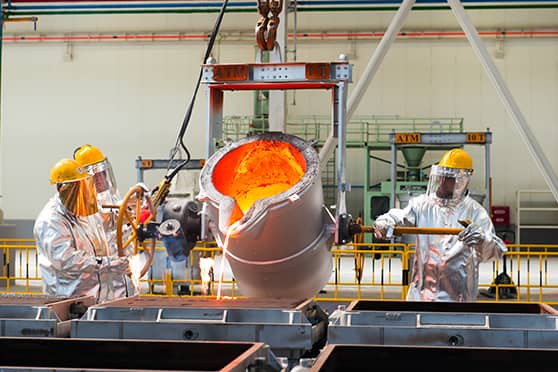
The M.Tech program in Metallurgical Engineering is designed to provide advanced education and specialized skills for individuals seeking expertise in the field of metallurgy, materials science, and engineering. Tailored for graduates with a background in metallurgical engineering, materials engineering, or related disciplines, this program offers a comprehensive curriculum covering a spectrum of metallurgical principles, materials processing, and advanced materials characterization. The core curriculum encompasses key areas such as Extractive Metallurgy, Physical Metallurgy, Alloy Design, Materials Characterization Techniques, and Advanced Heat Treatment Processes. These courses are meticulously structured to provide students with a deep understanding of the theoretical foundations and practical applications of metallurgical engineering. The program places a strong emphasis on addressing contemporary challenges in the metallurgical industry, including developing innovative materials with enhanced properties, sustainable processing methods, and ensuring the reliability of materials in extreme conditions. Practical learning is a fundamental aspect of the M.Tech in Metallurgical Engineering. Students engage in hands-on experiences through laboratory work, industrial visits, and research projects. State-of-the-art metallurgical laboratories equipped with advanced equipment for metallography, thermal analysis, and mechanical testing provide students with the opportunity to apply theoretical concepts to real-world metallurgical scenarios. This practical exposure not only enhances technical skills but also fosters critical thinking, problem-solving abilities, and effective collaboration. Research opportunities are integrated into the program, allowing students to delve into innovative projects under the guidance of experienced faculty members. Specializations within metallurgical engineering, such as Materials Design and Processing, Advanced Alloys, or Nanomaterials, offer students the flexibility to tailor their studies based on their interests and career aspirations. Research experiences contribute to the advancement of knowledge in metallurgical engineering and prepare students for roles in research and development, materials industries, or academia. The program's elective courses offer further customization, enabling students to focus on specific aspects of metallurgical engineering, such as corrosion engineering, computational materials science, or additive manufacturing. Graduates of the M.Tech in Metallurgical Engineering are well-prepared for diverse career opportunities in industries such as steel production, aerospace, automotive, and research institutions. The program's comprehensive curriculum, combined with practical experience and research exposure, ensures that graduates are equipped to contribute to the innovation and advancement of materials and metallurgical technologies.